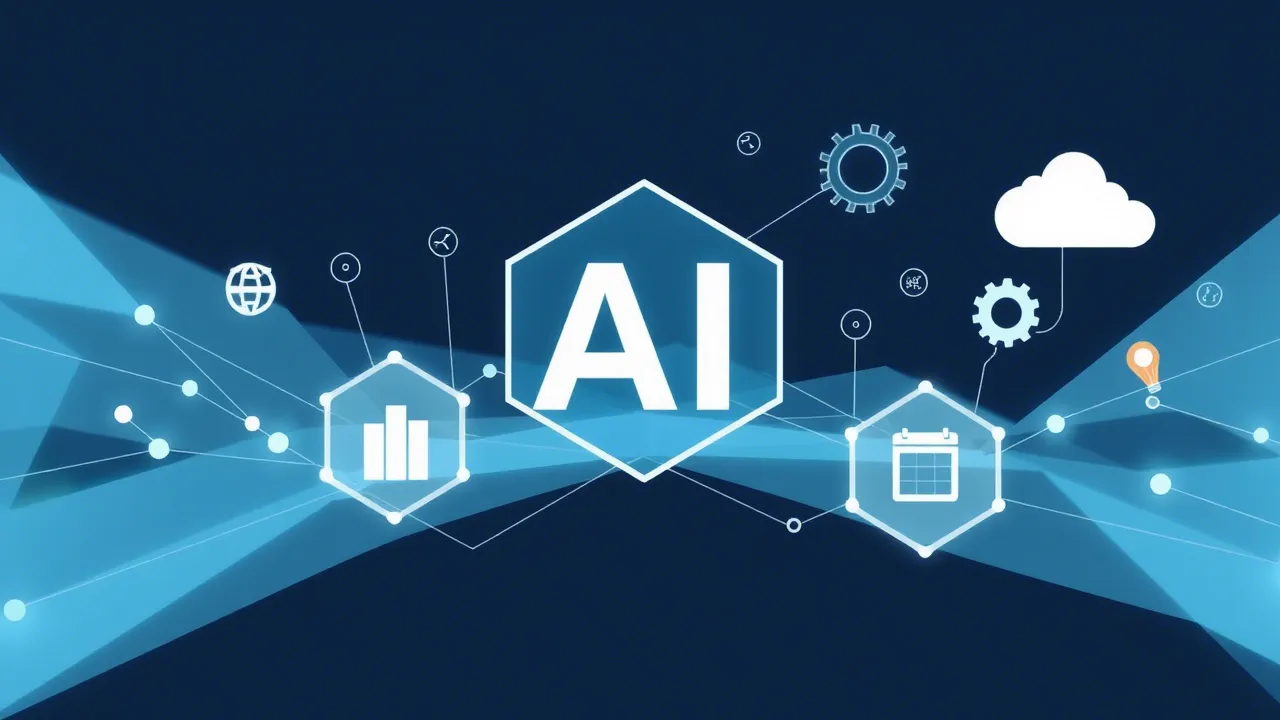The days when artificial intelligence was a topic of futuristic predictions and experimental projects are gone. By 2025, the initial wave of hype has subsided, and real, measurable enterprise applications of AI have come to the forefront. Companies worldwide have moved from the "proof-of-concept" stage to deeply integrating AI into their core processes, aiming for tangible returns on investment, increased scalability, and operational reliability. Recent AI advancements, including more powerful and flexible models (like Gemini 2.5 Flash with its "Thinking Budget" or new reasoning agents in Microsoft 365 Copilot), as well as improved implementation tools, have only accelerated this process.
Key Areas of Enterprise AI Application in 2025:
- Hyper-Personalization in Customer Experience (CX):
- Advanced Recommendation Engines: AI algorithms analyze customer behavior to provide ultra-relevant product and service suggestions.
- Personalized Marketing: Creation of unique content and advertising campaigns tailored to each individual consumer.
- Intelligent Chatbots and Virtual Assistants: Providing 24/7 customer support using AI agents capable of understanding complex queries and offering personalized solutions.
- Intelligent Automation & Operational Efficiency:
- Back-Office Automation: AI takes over routine tasks such as invoice processing, data entry, HR processes, and document management.
- Supply Chain Optimization: Demand forecasting, inventory management, optimization of logistics routes, and warehouse automation.
- Predictive Maintenance in Manufacturing: AI analyzes data from equipment sensors to predict potential breakdowns and schedule maintenance, reducing downtime.
- Data Analysis & Decision Making:
- In-depth Business Analytics: AI identifies hidden patterns, risks, and opportunities in large datasets inaccessible to traditional analysis methods.
- Fraud Detection and Cybersecurity: Machine learning algorithms effectively detect anomalies and suspicious activity in real-time.
- Multimodal Analysis: Using AI to analyze diverse business data, including text reports, production images, and call center audio recordings.
- Product & Service Innovation:
- Accelerating R&D: AI is used in pharmaceuticals for new drug discovery, in materials science for creating new materials, and in developing new technologies.
- Embedded AI Features: Adding intelligent capabilities to existing products and services to enhance their consumer value (e.g., smart thermostats, personalized financial advice).
- Enhancing Employee Productivity:
- AI Assistants for Employees: Tools like advanced versions of Microsoft 365 Copilot help employees with writing, research, presentation preparation, and task management.
- Optimizing Internal Communications: AI assists in knowledge management within the company, providing quick access to necessary information.
Challenges in Enterprise AI Adoption (still relevant in 2025):
Despite clear advantages, companies face several challenges: data quality and governance, integration with legacy systems, a shortage of qualified AI specialists, high implementation and scaling costs, and the need to ensure ethical AI use and prevent bias. Change management within the organization also plays a key role.
In 2025, artificial intelligence is no longer just a technology of the future but a powerful practical tool that, with a strategic approach and competent implementation, can provide real value and competitive advantages for businesses. Companies that have learned to effectively leverage enterprise applications of AI are leading their industries today.
